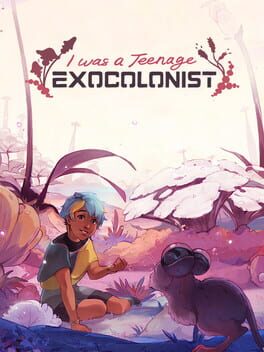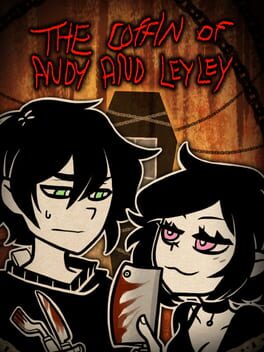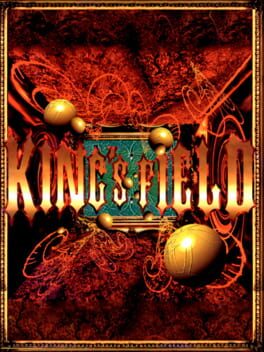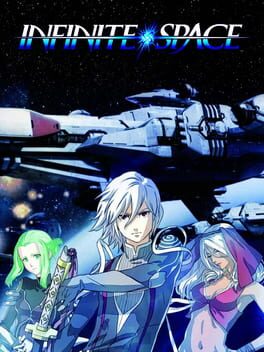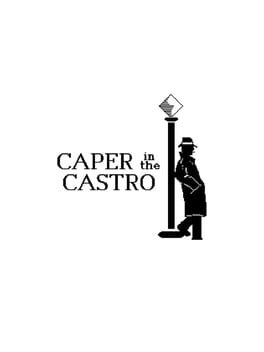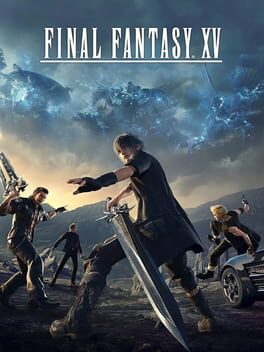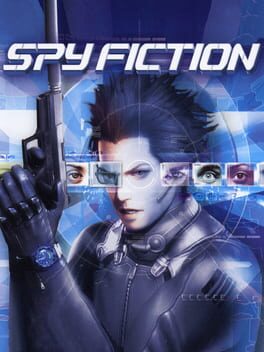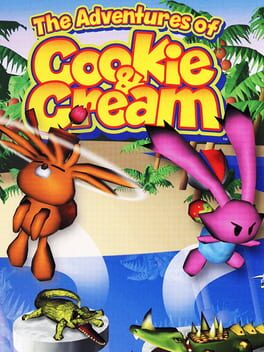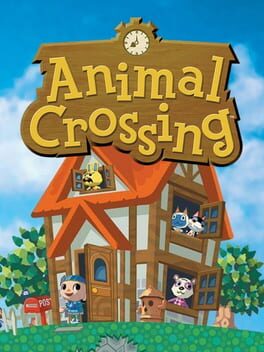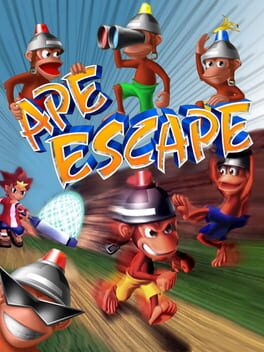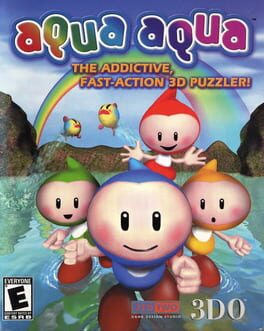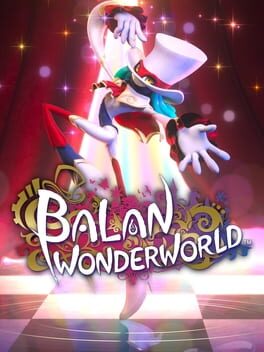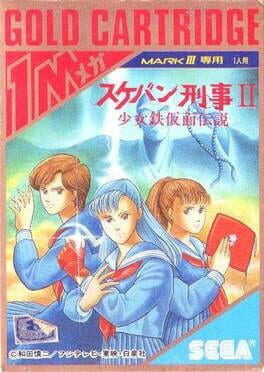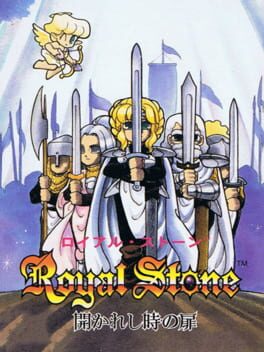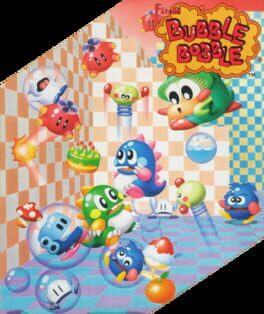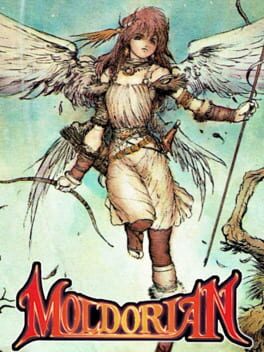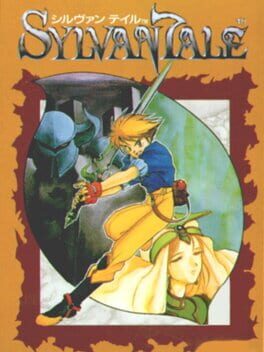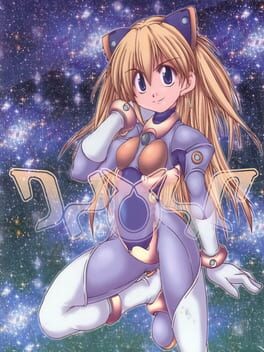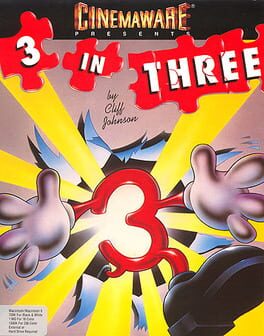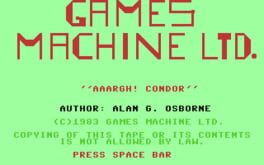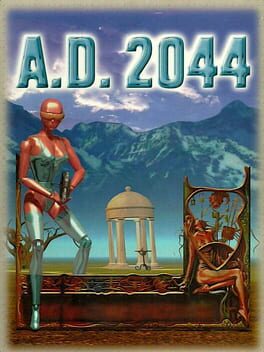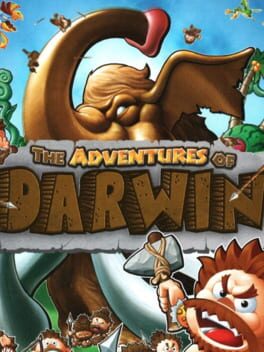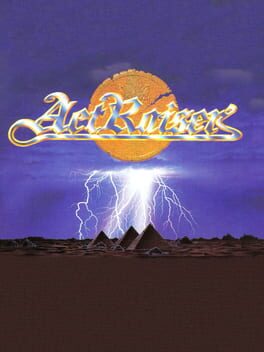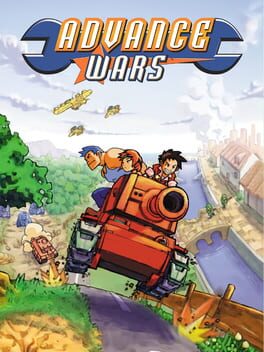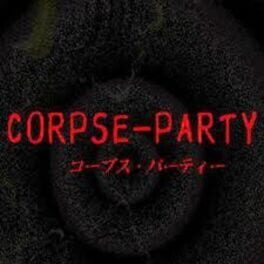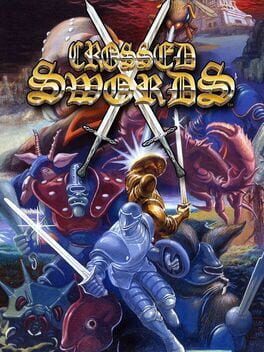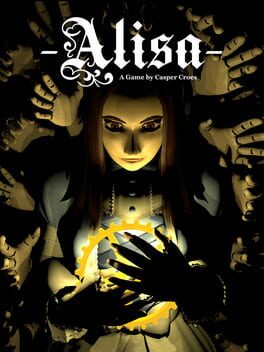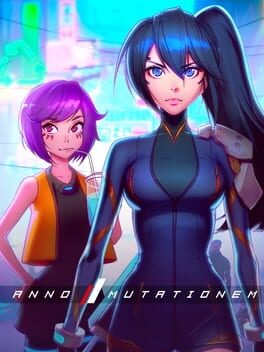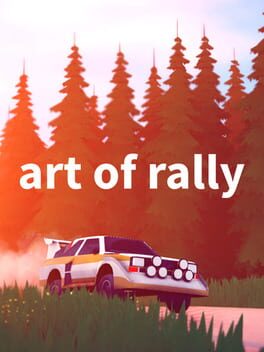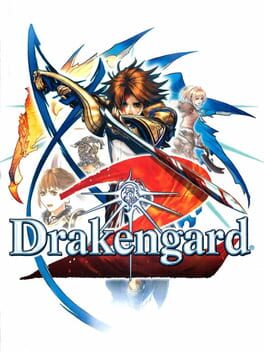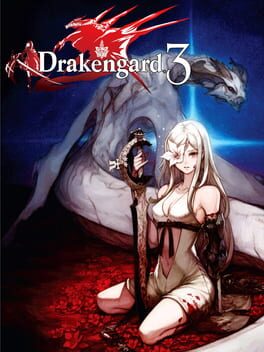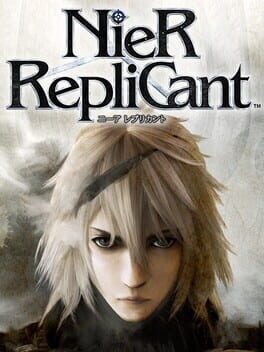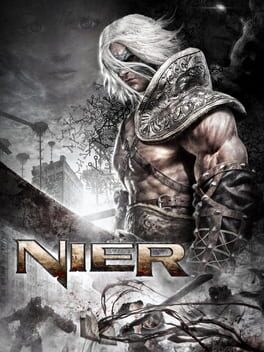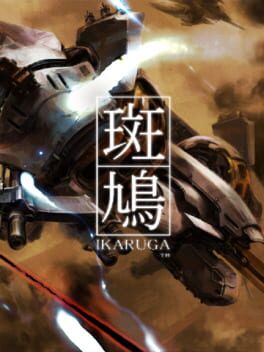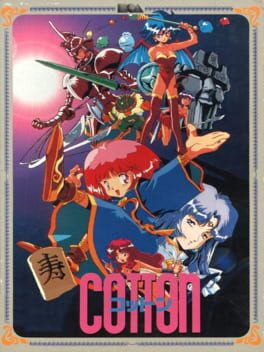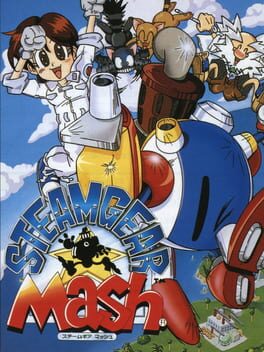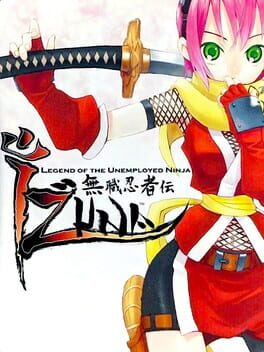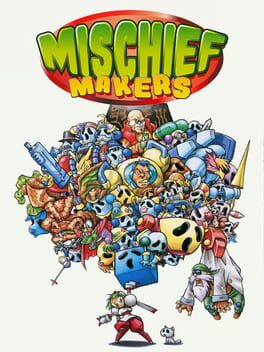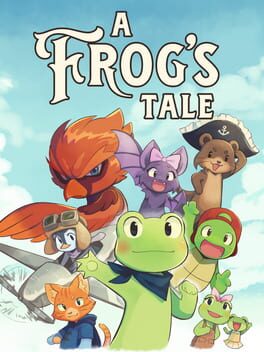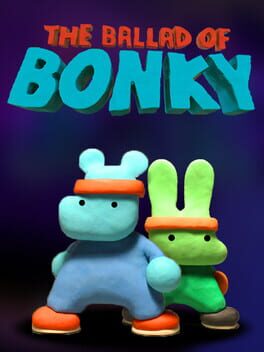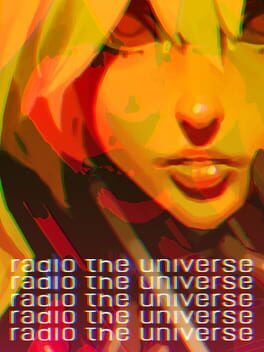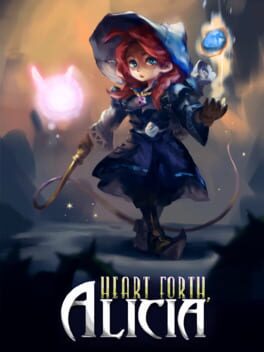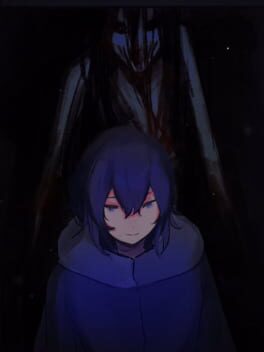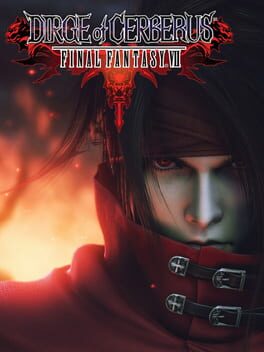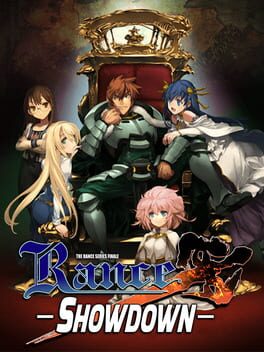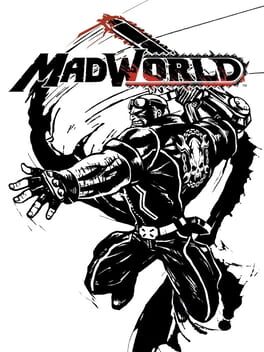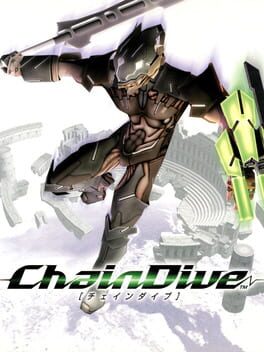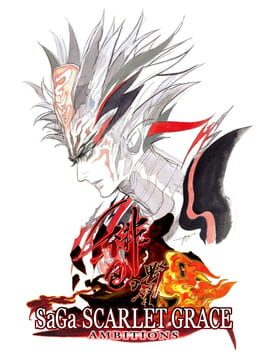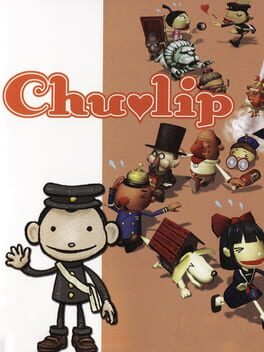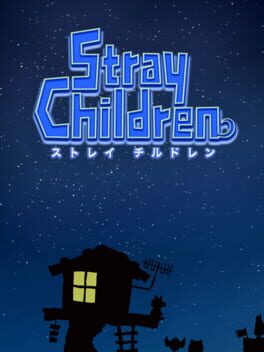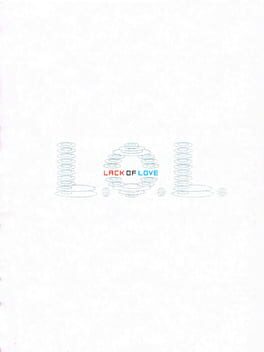Generic_Anim8
41 reviews liked by Generic_Anim8
Alan Wake
2010
After stopping my car at the 15th big door I need to go find a button to open and then oh no it's unpowered we gotta do a light electricity puzzle to get that working and drive onto the next big industrial door I realized this is actually one of the games most directly pulling from HL2-era Valve level design. I live for that shit. Between that and all the things I recognized and desperately wanted to know more about having played Control first, I spent the whole game Leo pointing at the screen.
Really great and bold especially for its time, but really should've been much more of an adventure game with a bit of puzzling and combat sprinkled in than the full-on third person shooter it often feels the need to be. Whether you see that as console action games reaching higher in terms of storytelling than was typically done or as a 3D adventure with combat stapled on to appeal to a mass market is on you, I suppose. That focus also lead to de-emphasizing their beautiful yet mundane rural setting that draws me to this the most. My favorite moments were those spent looking around in the kid's section of a library or national park vistor's center, not popping a thousand not-zombies.
Really great and bold especially for its time, but really should've been much more of an adventure game with a bit of puzzling and combat sprinkled in than the full-on third person shooter it often feels the need to be. Whether you see that as console action games reaching higher in terms of storytelling than was typically done or as a 3D adventure with combat stapled on to appeal to a mass market is on you, I suppose. That focus also lead to de-emphasizing their beautiful yet mundane rural setting that draws me to this the most. My favorite moments were those spent looking around in the kid's section of a library or national park vistor's center, not popping a thousand not-zombies.
The cool thing about being an adult is that you can look at a game with a ton of Discourse surrounding it, and just play it for yourself because you know that fiction is allowed to include Dark topics, and what matters is how its handled
The Coffin of Andy and Leyley is........fine. Almost unremarkable if you remove the Discourse. The gameplay is peak bog standard RPG Maker walk and talking, where you press space on an object and maybe pick it up to bring it somewhere else. The kind that's perfectly servicable but occasionally slows the pacing down if you can't figure out what to interactive with, and therefore just start trying everything. If you take a break from the game and come back, you might stumble trying to remember where you left off
The writing is unabashedly edgy, and I think it would still be very polarizing without all the dialogue about Ashley wanting to fuck her brother. I actually found myself reminded a lot of Jhonen Vasquez's work, which I will admit I haven't read since I was 15 so maybe my memory is off, where they share that same slightly immature and incredibly cynical strain of humour that occasionally falls into the territory of trying too hard. There's a scene where you're in a public park and if you interact with a tree, the game is like "you picked up: used condom - you decide not to bring it with you". There's an billboard advert that says "are you tired of being alive? ask your doctor about euthanasia today!". Maybe RPG Maker is slightly to blame for this but a part of me is surprised Andy & Leyley came out in 2023, because it really feels like something that would've been made while I was in High School, and that someone like me would've loved back then
As for the incest stuff, I do think it's a bit disingenous to say "oh it's just a bad ending" when Ashley makes repeated comments that boil down to "I would like to fuck my brother". You don't need to justify your enjoyment of the game with "actually, it's a commentary on toxic relationships", because sure it is, but the game never really commits to it and that's fine! you're allowed to like this because it's a bit edgy and fucked up, that is okay. Alternatively, there's nothing wrong with saying "I'm not a prude but the gameplay is boring and the writing tries too hard"
I do think the game struggles a little bit with knowing what it wants to be, and because of that, it tends to go in circles sometimes. I did find myself getting surprisingly invested in the world and the characters, but kept wanting more since each episode length is pretty short so far. I wanna see more consequences for the fucked up things these characters do and feel, but maybe that'll be in the later chapters. I will say, the artstyle is very nice - every character is very expressive with their portraits. You can tell you're in a world of RPG Maker tiles but I think they make the most of it and the artstyle is there too
The Coffin of Andy and Leyley is........fine. Almost unremarkable if you remove the Discourse. The gameplay is peak bog standard RPG Maker walk and talking, where you press space on an object and maybe pick it up to bring it somewhere else. The kind that's perfectly servicable but occasionally slows the pacing down if you can't figure out what to interactive with, and therefore just start trying everything. If you take a break from the game and come back, you might stumble trying to remember where you left off
The writing is unabashedly edgy, and I think it would still be very polarizing without all the dialogue about Ashley wanting to fuck her brother. I actually found myself reminded a lot of Jhonen Vasquez's work, which I will admit I haven't read since I was 15 so maybe my memory is off, where they share that same slightly immature and incredibly cynical strain of humour that occasionally falls into the territory of trying too hard. There's a scene where you're in a public park and if you interact with a tree, the game is like "you picked up: used condom - you decide not to bring it with you". There's an billboard advert that says "are you tired of being alive? ask your doctor about euthanasia today!". Maybe RPG Maker is slightly to blame for this but a part of me is surprised Andy & Leyley came out in 2023, because it really feels like something that would've been made while I was in High School, and that someone like me would've loved back then
As for the incest stuff, I do think it's a bit disingenous to say "oh it's just a bad ending" when Ashley makes repeated comments that boil down to "I would like to fuck my brother". You don't need to justify your enjoyment of the game with "actually, it's a commentary on toxic relationships", because sure it is, but the game never really commits to it and that's fine! you're allowed to like this because it's a bit edgy and fucked up, that is okay. Alternatively, there's nothing wrong with saying "I'm not a prude but the gameplay is boring and the writing tries too hard"
I do think the game struggles a little bit with knowing what it wants to be, and because of that, it tends to go in circles sometimes. I did find myself getting surprisingly invested in the world and the characters, but kept wanting more since each episode length is pretty short so far. I wanna see more consequences for the fucked up things these characters do and feel, but maybe that'll be in the later chapters. I will say, the artstyle is very nice - every character is very expressive with their portraits. You can tell you're in a world of RPG Maker tiles but I think they make the most of it and the artstyle is there too
King's Field
1994
I think I used to buy into the idea of the auteur a bit too much. A few years ago I would have exclusively sung Miyazaki's praises for the high quality of the Souls games, but over the years as the collaborative nature of art became more apparent to me I started thinking, just because I hadn't heard of FromSoftware prior to Demon's Souls doesn't mean that one guy is responsible for the quality of the work they put out these days. Like, there's a lot of people working on those games, y'know?
It got to a point where I was talking to someone about how we should refer to the Souls games, with me arguing for the term 'Souls' over 'Soulsborne', which I maintain was always a silly and short-sighted name. They said, "I just call them FromSoftware games". I pointed out that From had many more games to which they replied "yeah, but no one cares about those". And it's like, fuck man. That sucks. Yet there I was, with nothing to stand on, having played all 7 Souls games extensively yet never touching anything else FromSoftware had ever produced.
So here we are, King's Field, the actual original Japanese-only game made playable through fan-translation. Both the beginning of the series with the most widley-touted influence on Souls and the first FromSoftware game ever. How did I find it?
By most normative standards, its bad. It's a slow, clunky, obtuse piece of shit. However, each of those elements represents a unity of vision that I did not expect in an early-3D game from a first-time developer in 1994. I see why this series is regarded as the predecessor to Souls; the game is defined by cryptic storytelling, exploration into deep depths, and the slow, high-commitment combat that defines the Souls games, particularly the first three. The notion that every characteristic we associate with Souls is Miyazaki's style is not true. It's the house style. Shit, the Moonlight Greatsword is even here.
What differentiates the first King's Field from Souls is both a lack of refinement regarding gameplay and level design, and the Souls games' commitment to giving thematic weight to its gameplay elements. While the "tough but fair" mantra might be a bit oversold regarding Souls, there's certainly an argument. King's Field, on the other hand, is a clunky motherfucker that will kill you and laugh about it. You're not avoiding damage or deaths here, let's be clear. More significant is the second difference; there is no narrative or commentary strongly underlining the gameplay here. Contrast this to Dark Souls, where the concept of Hollowing and the cycle of fire gives thematic and philosophical weight to the gameplay.
Cool game, fascinating history. However, I think it's probably a touch too obtuse for its own good. I needed an annotated map for this game, as I have too much important stuff going on right now to spend hours at a time not understanding where I am, or where I'm going, or what that NPC is trying to convey, etc. However, if I'd played this in 1994 with more time on my hands, I like to think I'd have been a little bit enchanted. Such a cool, flawed, atmospheric little game. I can't wait to see what other FromSoftware titles I've missed out on.
It got to a point where I was talking to someone about how we should refer to the Souls games, with me arguing for the term 'Souls' over 'Soulsborne', which I maintain was always a silly and short-sighted name. They said, "I just call them FromSoftware games". I pointed out that From had many more games to which they replied "yeah, but no one cares about those". And it's like, fuck man. That sucks. Yet there I was, with nothing to stand on, having played all 7 Souls games extensively yet never touching anything else FromSoftware had ever produced.
So here we are, King's Field, the actual original Japanese-only game made playable through fan-translation. Both the beginning of the series with the most widley-touted influence on Souls and the first FromSoftware game ever. How did I find it?
By most normative standards, its bad. It's a slow, clunky, obtuse piece of shit. However, each of those elements represents a unity of vision that I did not expect in an early-3D game from a first-time developer in 1994. I see why this series is regarded as the predecessor to Souls; the game is defined by cryptic storytelling, exploration into deep depths, and the slow, high-commitment combat that defines the Souls games, particularly the first three. The notion that every characteristic we associate with Souls is Miyazaki's style is not true. It's the house style. Shit, the Moonlight Greatsword is even here.
What differentiates the first King's Field from Souls is both a lack of refinement regarding gameplay and level design, and the Souls games' commitment to giving thematic weight to its gameplay elements. While the "tough but fair" mantra might be a bit oversold regarding Souls, there's certainly an argument. King's Field, on the other hand, is a clunky motherfucker that will kill you and laugh about it. You're not avoiding damage or deaths here, let's be clear. More significant is the second difference; there is no narrative or commentary strongly underlining the gameplay here. Contrast this to Dark Souls, where the concept of Hollowing and the cycle of fire gives thematic and philosophical weight to the gameplay.
Cool game, fascinating history. However, I think it's probably a touch too obtuse for its own good. I needed an annotated map for this game, as I have too much important stuff going on right now to spend hours at a time not understanding where I am, or where I'm going, or what that NPC is trying to convey, etc. However, if I'd played this in 1994 with more time on my hands, I like to think I'd have been a little bit enchanted. Such a cool, flawed, atmospheric little game. I can't wait to see what other FromSoftware titles I've missed out on.
Final Fantasy VII
1997
within a span of two months, from september to november of 2019, i lost an old friend and former lover to bone cancer at 23 years old, and my father revealed to me that he’d been diagnosed with stage 2 lung cancer. this would indicate a nearly three year journey to where i am now - a sequence of events which tested the limits of my perseverance, willpower, camaraderie, self-love, and actualization of community. my life underwent severe changes throughout this period; essentially revising my entire outlook on my relationships to patching up and mending my relationship with my dad which had resulted in some pretty catastrophic gaps gashed out pretty equally on both sides. some outside events completely reformed how i lived, the safety and love i had to provide myself for my own wellbeing, and fostering a lot of growth and evolution out of a patch where what i’d known and what i held onto were slipping through my fingers.
during this time, my father set an example of how he would choose to live. he combatted cancer and heartbreak with rudiment, structure, dedication and iron will. i watched him break on more than a few occasions. but it was through his search for that light where he found his own branch of buddhism, practice of meditation, and a new outlook on his life. he began to teach me the lessons he’d taken away - both of us being that type of person with loud, constantly-spewing minds. he instilled and internalized the idea that meditation and serenity are not about clearing the mind of thought, but finding a means to acknowledge the thought and move on from it. it was only along the lines of that practice that we both began to unbox our trauma - both conjoined and individual. it was only then when we could cultivate growth, hope, and those first rays of light.
i had no access to therapy or professional help at the time. i was between jobs when i wasn't crammed into ones that abused and berated me and my time. my greatest resources for self-love, as they are now, were my loved ones and my then-cracked-yet-unbroken devotion to art. traumatic attachments kept me apart from those things i loved most, but in the process of recovering from a sequence in time in which i felt like i’d lost myself, figured it took recessing back to those works which had so clearly defined attics of my life to that point to regain shards of who i’d been, and define who i would choose to be moving forward. over the next year, i would play final fantasy vii six times to completion, twice with friends, four times on my own. the hanging threads of grief, trauma, self-actualization v. dissociation, lack of direction - these things culminated in a story which more and more i felt whispered answers directly to me, for my consumption alone. it’s in those moments where a bond is made between art and audience where the attachment becomes not just inseparable, but near essential.
final fantasy vii doesn’t hand you answers for the questions you come to it with. there isn’t a resolution to the trauma, there isn’t a solution to the pain or the grief. it is an embrace, and a hold of the hand, and a gentle call; “here is how you live with yourself. here is how you learn to be alive again.” the sociopolitical conflicts, the internal struggles, the budding seeds of affection and fraternity don’t reach a natural apex - they hum in anticipation of a deciding factor which never comes. perpetually trapped within the question, but offering you the means to provide your own answer in life. the final shot of the game isn’t a conclusion meant to be expanded upon. it’s simply a closing of the cover, the final page turned before the index of note paper before being passed to you with the command - “apply yourself. turn this into something that matters.” so i chose to.
and i found myself in midgar again, with new friends and a new outlook.
you come back to the slums of wall market and sector 7 with a new worldview and appreciation each time. there’s a different purpose, when your relationship with this game is as intimate as mine, for coming back here. i know the smog, the street life, the feeling of inescapable, walled-in urban destitution well. you grow up in any city poor enough and you get to know midgar intimately. it’s a familiar setting with a familiar social agency. the seventh heaven crew, they’re all faces i’ve known, fires in bellies i once shared, and now understand in a different light. they’re old friends i knew in my activism years as a teenager, they’re people i looked up to and lost through the years. i’ve lost a lot of people and a lot of faith over time. it might seem like a quick moment to many but the sector 7 tower fight reminds me of people and things that exist only in memories now.
the moment the world opens up and the main theme plays, while unscripted, is one of the most powerful in the game to me. i retain that this title track might be my favorite piece of video game music and such a perfect encapsulation of the game’s philosophy and emotional core. stinging synth strings meet acoustic woodwind and orchestral drones. playful countermelodies give way to massive, bombastic chords in a rocking interplay that rarely fails to inspire, intrigue and invoke. uematsu-sensei, unquestionably at the apex of his mastery here, provides his most timeless score. i think about, am inspired by, and draw from his work here intensely. the artistry pours out from every nook of final fantasy vii - the models, the cutscenes, the background renders, the gameplay systems, the story, the use of diegetic sound, the pacing, the designs - everything came together in a way that somehow evokes equal feelings of nostalgia, futurism, dread, fear, warmth, love, hope, and utter timelessness. streaming and voice-acting this entire game with my close friends was one of the best experiences of my year. hitting each turn with a decently blind audience provided both knowing and loving perspective and the unmitigated rush of first experience - in tandem, a passing of the torch, an unspeakable gift of an unbroken chain shared between loved ones. if final fantasy vii saved my life once before, this was the run which restored its meaning and direction.
i’ve been cloud, i’ve been tifa, i’ve been barret, i’ve been nanaki. i’ve been zack, i’ve been aerith. there are lives lived in the confines of final fantasy vii which i hold as pieces of my own, countless repetitions of those stories with those resolutions my own to meet, different each time. there was something magic about the ability to, a year after that painful strike of all of that anguish, that death, that loss, that fear, sit on the end screen as the series’ endless “prelude” played amongst 32-bit starfields and openly sob for a half hour surrounded by the voices and words of my loved ones. that was the day i learned to live again. it’s more than a game when you know it this intimately. it’s more than an experience when you share these scars. it’s more than art when you hold onto so dearly. there isn’t a classifier for what final fantasy vii means to me other than, “a lot”. sometimes, less is more. i don’t have a conclusion beyond that for you. the experience recalls everyone and everything i've ever loved and lost, and all that i've come to gain and hold dear. goodbye to some, hello to all the rest. true, reading this, it may have been a waste of your time, but i’m glad i was able to share this with someone. i hope this reaches at least one of you on a level you needed today, or maybe it invokes something in you about something you love so dearly. i’m here to tell you - this is how i learned to live again. if you need someone to tell you, today, that you can too, here it is. you aren’t alone. go find those answers for yourself.
please don't step on the flowers on your way.
during this time, my father set an example of how he would choose to live. he combatted cancer and heartbreak with rudiment, structure, dedication and iron will. i watched him break on more than a few occasions. but it was through his search for that light where he found his own branch of buddhism, practice of meditation, and a new outlook on his life. he began to teach me the lessons he’d taken away - both of us being that type of person with loud, constantly-spewing minds. he instilled and internalized the idea that meditation and serenity are not about clearing the mind of thought, but finding a means to acknowledge the thought and move on from it. it was only along the lines of that practice that we both began to unbox our trauma - both conjoined and individual. it was only then when we could cultivate growth, hope, and those first rays of light.
i had no access to therapy or professional help at the time. i was between jobs when i wasn't crammed into ones that abused and berated me and my time. my greatest resources for self-love, as they are now, were my loved ones and my then-cracked-yet-unbroken devotion to art. traumatic attachments kept me apart from those things i loved most, but in the process of recovering from a sequence in time in which i felt like i’d lost myself, figured it took recessing back to those works which had so clearly defined attics of my life to that point to regain shards of who i’d been, and define who i would choose to be moving forward. over the next year, i would play final fantasy vii six times to completion, twice with friends, four times on my own. the hanging threads of grief, trauma, self-actualization v. dissociation, lack of direction - these things culminated in a story which more and more i felt whispered answers directly to me, for my consumption alone. it’s in those moments where a bond is made between art and audience where the attachment becomes not just inseparable, but near essential.
final fantasy vii doesn’t hand you answers for the questions you come to it with. there isn’t a resolution to the trauma, there isn’t a solution to the pain or the grief. it is an embrace, and a hold of the hand, and a gentle call; “here is how you live with yourself. here is how you learn to be alive again.” the sociopolitical conflicts, the internal struggles, the budding seeds of affection and fraternity don’t reach a natural apex - they hum in anticipation of a deciding factor which never comes. perpetually trapped within the question, but offering you the means to provide your own answer in life. the final shot of the game isn’t a conclusion meant to be expanded upon. it’s simply a closing of the cover, the final page turned before the index of note paper before being passed to you with the command - “apply yourself. turn this into something that matters.” so i chose to.
and i found myself in midgar again, with new friends and a new outlook.
you come back to the slums of wall market and sector 7 with a new worldview and appreciation each time. there’s a different purpose, when your relationship with this game is as intimate as mine, for coming back here. i know the smog, the street life, the feeling of inescapable, walled-in urban destitution well. you grow up in any city poor enough and you get to know midgar intimately. it’s a familiar setting with a familiar social agency. the seventh heaven crew, they’re all faces i’ve known, fires in bellies i once shared, and now understand in a different light. they’re old friends i knew in my activism years as a teenager, they’re people i looked up to and lost through the years. i’ve lost a lot of people and a lot of faith over time. it might seem like a quick moment to many but the sector 7 tower fight reminds me of people and things that exist only in memories now.
the moment the world opens up and the main theme plays, while unscripted, is one of the most powerful in the game to me. i retain that this title track might be my favorite piece of video game music and such a perfect encapsulation of the game’s philosophy and emotional core. stinging synth strings meet acoustic woodwind and orchestral drones. playful countermelodies give way to massive, bombastic chords in a rocking interplay that rarely fails to inspire, intrigue and invoke. uematsu-sensei, unquestionably at the apex of his mastery here, provides his most timeless score. i think about, am inspired by, and draw from his work here intensely. the artistry pours out from every nook of final fantasy vii - the models, the cutscenes, the background renders, the gameplay systems, the story, the use of diegetic sound, the pacing, the designs - everything came together in a way that somehow evokes equal feelings of nostalgia, futurism, dread, fear, warmth, love, hope, and utter timelessness. streaming and voice-acting this entire game with my close friends was one of the best experiences of my year. hitting each turn with a decently blind audience provided both knowing and loving perspective and the unmitigated rush of first experience - in tandem, a passing of the torch, an unspeakable gift of an unbroken chain shared between loved ones. if final fantasy vii saved my life once before, this was the run which restored its meaning and direction.
i’ve been cloud, i’ve been tifa, i’ve been barret, i’ve been nanaki. i’ve been zack, i’ve been aerith. there are lives lived in the confines of final fantasy vii which i hold as pieces of my own, countless repetitions of those stories with those resolutions my own to meet, different each time. there was something magic about the ability to, a year after that painful strike of all of that anguish, that death, that loss, that fear, sit on the end screen as the series’ endless “prelude” played amongst 32-bit starfields and openly sob for a half hour surrounded by the voices and words of my loved ones. that was the day i learned to live again. it’s more than a game when you know it this intimately. it’s more than an experience when you share these scars. it’s more than art when you hold onto so dearly. there isn’t a classifier for what final fantasy vii means to me other than, “a lot”. sometimes, less is more. i don’t have a conclusion beyond that for you. the experience recalls everyone and everything i've ever loved and lost, and all that i've come to gain and hold dear. goodbye to some, hello to all the rest. true, reading this, it may have been a waste of your time, but i’m glad i was able to share this with someone. i hope this reaches at least one of you on a level you needed today, or maybe it invokes something in you about something you love so dearly. i’m here to tell you - this is how i learned to live again. if you need someone to tell you, today, that you can too, here it is. you aren’t alone. go find those answers for yourself.
please don't step on the flowers on your way.
Final Fantasy VII
1997
“It’s true that sometimes I can’t figure out who I am. There’s a lot of things muddled up in my memories. But, Tifa… you said, ‘Long time no see, Cloud’ right? Those words will always support me. I am the one you grew up with. I’m Cloud of Nibelheim. No matter how much I lose faith in myself, that is the truth.”
It’s 3:17 in the morning and I’m lying awake in bed, typing this up on my ten year anniversary with the woman I will spend the rest of my life with. Even in this moment of respite, my mind once again begins to wander back into the Lifestream. Five years ago, against all my fears and doubts, I sat down with that same woman to show her the most important thing in my life up until meeting her. I had never even thought to share this with anyone I had been with before. Despite my anxiety and dread over what she might think, I was elated to find her enjoying every moment right alongside me. To my greater surprise, she had become a self-proclaimed Tifa fangirl and now cheers her on in every one of her on-screen moments, big or small. Everything in my life from my tastes, to my expressions, to my most cherished memories—even my love—is forever intertwined… with FINAL FANTASY VII.
“But that's all right. As long as I'm with you... As long as you're by my side... I won't give up even if I'm scared.”
As its name suggests, FINAL FANTASY VII is the seventh main numbered entry in the long-running FINAL FANTASY series. Originally conceptualized for the Nintendo 64 and later brought over to the Sony PlayStation in a move that many could describe to be betrayal, FINAL FANTASY VII marked a significant shift in the video game market. People all over the world, completely unaware of the FINAL FANTASY brand—or even roleplaying games entirely—flocked to stores in 1997 to pick up and play this game. I was not one of those people. But two years later, once I was old enough to read at a decent level, I experienced what would later become the most influential piece of media in my entire life.
“I was frozen in time, but now I feel as if my time is just beginning...”
FFVII continues the series trend of traversing a fantastical world of magic and wonder with a party of misfits trying to save the world, only there are some key differences. First and foremost, the Materia system. While the core combat retains the same almost-turn-based ATB (Active Time Battle) system first introduced in FINAL FANTASY IV, characters are completely customizable regarding skills and magic. While each character has their own innate stats, every character can be made to fit any role. The depth of the Materia system is the heart of FFVII’s gameplay, and if the effort and research are put in, it can reward the player with some insanely creative and useful combinations and setups that can outright break the game in a very fun way. In addition to the new Materia system comes Limit Breaks—powerful abilities able to turn the tide of combat when characters have sustained enough damage. These are all specific to the respective party members using them and are the key difference between each character.
“I always thought this planet was so huge. But lookin' at it from space, I realized it's so small. That's why I say this planet's still a kid. Someone's gotta protect it.”
In a harsh contrast to the games preceding it, FINAL FANTASY VII takes a page out of Akira to create a world that is brimming with technology. The Shinra Electric Power Company has created a new fuel source known as Mako by siphoning the life force of the planet itself without regard for Gaia’s wellbeing. This has led to great technological advancements throughout the world—most notably in the floating cyberpunk hub known as Midgar. The world of FFVII is far bleaker than most of its contemporaries at the time. The people of Gaia have no qualms telling it like it is and shedding some light on how hopeless, frail, and dissolute life has become after Shinra’s rise to power. Every character—no matter how insignificant—has had their life dramatically changed (for the worse) because of Shinra. As AVALANCHE, the player begins their journey performing acts of eco-terrorism to combat Shinra’s destruction of the planet, but soon uncovers a web of entangled stories and tragedies all converging on one single point—Sephiroth.
“Yo, jes' think about it... How many people in this world do ya think really understand themselves? People get depressed in life because they don't know what's up. But, they go on living. They don't run away... isn't that how it is?”
FINAL FANTASY VII was the first video game to tell me a story that resonated with me personally. Its plot is full of twists, turns, and big reveals that always had me shaking with excitement and anticipation, but the most important element is its character. Cloud Strife. Even if you’ve never played an RPG in your life, you’ve at least heard the name before somewhere, and for good reason. As the main protagonist of FFVII, Cloud is the character whose perspective you witness a majority of the events of the game through. To say Cloud is a dynamic character is an understatement for the ages. Extremely cold and dejected at first, Cloud develops into one of the most relatable and real fictional characters I’ve seen. While an enigma at first, players learn to understand Cloud’s true self over time. For me, there is no character I could ever understand better. As a kid, I shared so many of the aspirations and personality quirks of this mentally unstable box of emotional conflict and turmoil. From his prideful façade to his deepest sorrows and self-doubts, Cloud’s personality and depth shine through.
“What I have shown you is reality. What you remember, that is the illusion.”
Counter to Cloud is Sephiroth. By now, it’s nearly impossible to not know who Sephiroth is. He’s arguably even more popular than Cloud himself. Despite that, FINAL FANTASY VII is unparalleled in its foreshadowing and build-up to the true antagonist of the game. As the player makes their way through the world, they are constantly reminded just how powerful and foreboding Sephiroth is. From an execution of the world’s biggest threat to a flashback showing in raw numbers just how much of a force he is, Sephiroth is the perfect foil to Cloud. His personal connection to several of the key cast members adds a layer of determination and agency for the player. It’s not just Cloud that wants to bring Sephiroth down—it’s you.
“What to do? Have you lost your way? When that happens we each have to take a good long look at ourselves. There's always something in the deepest reaches of our hearts. Something buried, or something forgotten. Remember it... Whatever that is, must certainly be what you are all looking for...”
The music, much like everything else in the game, is remarkable. Composed by musical legend and series veteran Nobuo Uematsu, this soundtrack stands out even among his own works. This is a rare occasion where I enjoy every single song on the soundtrack. For a soundtrack of nearly 90 songs, that’s quite a feat. Every piece amplifies their paired scene without fail be it serious or goofy. Many of the tracks represent the blend of fantasy and science fiction extraordinarily well with synthesized sounds and exhilarating melodies. Every location has its own unique theme that helps build immersion and set the mood accordingly. While the main battle theme (which is a certified video game classic at this point) plays for a majority of the combat encounters, several notable boss fights have their own music that creates memorable clashes with the evil of the world. I find myself listening to this soundtrack on a near-daily basis.
“I've... been thinking, too... about the universe... people... the planet... How wide and big... No matter where I go and what I do, it won't change a thing.”
There is no way I can objectively look at this game. It is so ingrained in who I am that I have to bring emotion and nostalgia into it. The game isn’t perfect—nothing is—but to me, it’s everything I need. An engaging story in a world that feels just as real as our own with characters that breathe life into it, all accompanied by ace gameplay and a soundtrack that can move you to tears. FINAL FANTASY VII is a lot of things to a lot of people. To me, it is my beginning. It is the reason I cherish competent storytelling, complex characters, and expansive worlds. It’s the reason I see video games as more than just a hobby to pass the time. It’s why I want to create experiences and memories with people, to inspire them to explore and look at things in new lights just as I did when I was a kid… or to bring two close people even closer together. FINAL FANTASY VII was the spark that started it all, to continue on to all sorts of new things. Five year-old me popped that disc in and the game took me by the hand and said,
“Let's mosey.”
And I couldn’t be more grateful that it did.
It’s 3:17 in the morning and I’m lying awake in bed, typing this up on my ten year anniversary with the woman I will spend the rest of my life with. Even in this moment of respite, my mind once again begins to wander back into the Lifestream. Five years ago, against all my fears and doubts, I sat down with that same woman to show her the most important thing in my life up until meeting her. I had never even thought to share this with anyone I had been with before. Despite my anxiety and dread over what she might think, I was elated to find her enjoying every moment right alongside me. To my greater surprise, she had become a self-proclaimed Tifa fangirl and now cheers her on in every one of her on-screen moments, big or small. Everything in my life from my tastes, to my expressions, to my most cherished memories—even my love—is forever intertwined… with FINAL FANTASY VII.
“But that's all right. As long as I'm with you... As long as you're by my side... I won't give up even if I'm scared.”
As its name suggests, FINAL FANTASY VII is the seventh main numbered entry in the long-running FINAL FANTASY series. Originally conceptualized for the Nintendo 64 and later brought over to the Sony PlayStation in a move that many could describe to be betrayal, FINAL FANTASY VII marked a significant shift in the video game market. People all over the world, completely unaware of the FINAL FANTASY brand—or even roleplaying games entirely—flocked to stores in 1997 to pick up and play this game. I was not one of those people. But two years later, once I was old enough to read at a decent level, I experienced what would later become the most influential piece of media in my entire life.
“I was frozen in time, but now I feel as if my time is just beginning...”
FFVII continues the series trend of traversing a fantastical world of magic and wonder with a party of misfits trying to save the world, only there are some key differences. First and foremost, the Materia system. While the core combat retains the same almost-turn-based ATB (Active Time Battle) system first introduced in FINAL FANTASY IV, characters are completely customizable regarding skills and magic. While each character has their own innate stats, every character can be made to fit any role. The depth of the Materia system is the heart of FFVII’s gameplay, and if the effort and research are put in, it can reward the player with some insanely creative and useful combinations and setups that can outright break the game in a very fun way. In addition to the new Materia system comes Limit Breaks—powerful abilities able to turn the tide of combat when characters have sustained enough damage. These are all specific to the respective party members using them and are the key difference between each character.
“I always thought this planet was so huge. But lookin' at it from space, I realized it's so small. That's why I say this planet's still a kid. Someone's gotta protect it.”
In a harsh contrast to the games preceding it, FINAL FANTASY VII takes a page out of Akira to create a world that is brimming with technology. The Shinra Electric Power Company has created a new fuel source known as Mako by siphoning the life force of the planet itself without regard for Gaia’s wellbeing. This has led to great technological advancements throughout the world—most notably in the floating cyberpunk hub known as Midgar. The world of FFVII is far bleaker than most of its contemporaries at the time. The people of Gaia have no qualms telling it like it is and shedding some light on how hopeless, frail, and dissolute life has become after Shinra’s rise to power. Every character—no matter how insignificant—has had their life dramatically changed (for the worse) because of Shinra. As AVALANCHE, the player begins their journey performing acts of eco-terrorism to combat Shinra’s destruction of the planet, but soon uncovers a web of entangled stories and tragedies all converging on one single point—Sephiroth.
“Yo, jes' think about it... How many people in this world do ya think really understand themselves? People get depressed in life because they don't know what's up. But, they go on living. They don't run away... isn't that how it is?”
FINAL FANTASY VII was the first video game to tell me a story that resonated with me personally. Its plot is full of twists, turns, and big reveals that always had me shaking with excitement and anticipation, but the most important element is its character. Cloud Strife. Even if you’ve never played an RPG in your life, you’ve at least heard the name before somewhere, and for good reason. As the main protagonist of FFVII, Cloud is the character whose perspective you witness a majority of the events of the game through. To say Cloud is a dynamic character is an understatement for the ages. Extremely cold and dejected at first, Cloud develops into one of the most relatable and real fictional characters I’ve seen. While an enigma at first, players learn to understand Cloud’s true self over time. For me, there is no character I could ever understand better. As a kid, I shared so many of the aspirations and personality quirks of this mentally unstable box of emotional conflict and turmoil. From his prideful façade to his deepest sorrows and self-doubts, Cloud’s personality and depth shine through.
“What I have shown you is reality. What you remember, that is the illusion.”
Counter to Cloud is Sephiroth. By now, it’s nearly impossible to not know who Sephiroth is. He’s arguably even more popular than Cloud himself. Despite that, FINAL FANTASY VII is unparalleled in its foreshadowing and build-up to the true antagonist of the game. As the player makes their way through the world, they are constantly reminded just how powerful and foreboding Sephiroth is. From an execution of the world’s biggest threat to a flashback showing in raw numbers just how much of a force he is, Sephiroth is the perfect foil to Cloud. His personal connection to several of the key cast members adds a layer of determination and agency for the player. It’s not just Cloud that wants to bring Sephiroth down—it’s you.
“What to do? Have you lost your way? When that happens we each have to take a good long look at ourselves. There's always something in the deepest reaches of our hearts. Something buried, or something forgotten. Remember it... Whatever that is, must certainly be what you are all looking for...”
The music, much like everything else in the game, is remarkable. Composed by musical legend and series veteran Nobuo Uematsu, this soundtrack stands out even among his own works. This is a rare occasion where I enjoy every single song on the soundtrack. For a soundtrack of nearly 90 songs, that’s quite a feat. Every piece amplifies their paired scene without fail be it serious or goofy. Many of the tracks represent the blend of fantasy and science fiction extraordinarily well with synthesized sounds and exhilarating melodies. Every location has its own unique theme that helps build immersion and set the mood accordingly. While the main battle theme (which is a certified video game classic at this point) plays for a majority of the combat encounters, several notable boss fights have their own music that creates memorable clashes with the evil of the world. I find myself listening to this soundtrack on a near-daily basis.
“I've... been thinking, too... about the universe... people... the planet... How wide and big... No matter where I go and what I do, it won't change a thing.”
There is no way I can objectively look at this game. It is so ingrained in who I am that I have to bring emotion and nostalgia into it. The game isn’t perfect—nothing is—but to me, it’s everything I need. An engaging story in a world that feels just as real as our own with characters that breathe life into it, all accompanied by ace gameplay and a soundtrack that can move you to tears. FINAL FANTASY VII is a lot of things to a lot of people. To me, it is my beginning. It is the reason I cherish competent storytelling, complex characters, and expansive worlds. It’s the reason I see video games as more than just a hobby to pass the time. It’s why I want to create experiences and memories with people, to inspire them to explore and look at things in new lights just as I did when I was a kid… or to bring two close people even closer together. FINAL FANTASY VII was the spark that started it all, to continue on to all sorts of new things. Five year-old me popped that disc in and the game took me by the hand and said,
“Let's mosey.”
And I couldn’t be more grateful that it did.
Infinite Space
2009
I really love Infinite Space, I'm kinda of surprised to see that people don't find the game too interesting and the mechanics of the combat too complex or boring. I know that's not all of what was said but I want people to give this game a chance, and Im going to say why.
Imagine that space travel is common and humanity has explored it since way before you were born, but you're stuck in your planet. After getting the chance to go on an adventure and have your own spaceship, you can go to every corner of the galaxy, interact with each satelite or planet's citizens and partake in space battles. You can hire people to help you as you take the role of the captain. So you customize your ship and assign your crew to various jobs inside your fleet (yes you now have a fleet). You journey through space, and it's kinda of difficult at first, it's a big place y'know. One day you talk to a bartender in this one planet, the guy is annoying but you hear his story, he talks about his ex wife and some other stuff but you don't pay much attention. Then you travel to another galaxy, and here's the guy's ex wife, she tells you he is unemployed after losing his bar. You go back and now he's asking you to be part of your crew, you can say no, but you're not a monster, so you have him come along with you. Now you want to talk to other people in the bar, and you meet the space police who takes care of the Gate you need to pass to travel to another galaxy, you bribe them to get a free pass, just to go the gate and the guys who you met at the bar don't really care if you gave them half of your money, youre not getting past them, now you need to get your point across with a little violence.
I can't summarize the whole game bc that would be dumb and a waste of time, but this game rewards exploration, it rewards the time and effort you put into it, the writting is really engaging and the characters are colorfull, the combat is a little on the difficult side but the immersion it creates by having you on the edge, always thinking if you could take on this random ship you've encountered in the middle of your journey to the next planet bc you suffered enough in the last encounter, it creates a sense of danger that space exploration is not something everyone should be doing, this game oozes atmosphere and heart. To really explore space and have your journey, to engage with the world around you and change what little you can by effort and perseverance, this is Infinite Space.
Imagine that space travel is common and humanity has explored it since way before you were born, but you're stuck in your planet. After getting the chance to go on an adventure and have your own spaceship, you can go to every corner of the galaxy, interact with each satelite or planet's citizens and partake in space battles. You can hire people to help you as you take the role of the captain. So you customize your ship and assign your crew to various jobs inside your fleet (yes you now have a fleet). You journey through space, and it's kinda of difficult at first, it's a big place y'know. One day you talk to a bartender in this one planet, the guy is annoying but you hear his story, he talks about his ex wife and some other stuff but you don't pay much attention. Then you travel to another galaxy, and here's the guy's ex wife, she tells you he is unemployed after losing his bar. You go back and now he's asking you to be part of your crew, you can say no, but you're not a monster, so you have him come along with you. Now you want to talk to other people in the bar, and you meet the space police who takes care of the Gate you need to pass to travel to another galaxy, you bribe them to get a free pass, just to go the gate and the guys who you met at the bar don't really care if you gave them half of your money, youre not getting past them, now you need to get your point across with a little violence.
I can't summarize the whole game bc that would be dumb and a waste of time, but this game rewards exploration, it rewards the time and effort you put into it, the writting is really engaging and the characters are colorfull, the combat is a little on the difficult side but the immersion it creates by having you on the edge, always thinking if you could take on this random ship you've encountered in the middle of your journey to the next planet bc you suffered enough in the last encounter, it creates a sense of danger that space exploration is not something everyone should be doing, this game oozes atmosphere and heart. To really explore space and have your journey, to engage with the world around you and change what little you can by effort and perseverance, this is Infinite Space.
Caper in the Castro
1989
'We floated off into that quiet world which love made possible because the power devils had been admitted and therefore banished.'
– Mary Wings, She Came Too Late, 1986.
Played during the Backloggd’s Game of the Week (4th Jul. – 10th Jul., 2023).
The 1980s saw a shift in American lesbian fiction away from coming-out stories and towards the detective genre. This transition was not entirely smooth and was met with highly polarised critical responses. Reagan's presidency unleashed a national conservative fever that sought to normalise homophobia, while the AIDS epidemic was greeted with outright inaction by the federal government. Anna Wilson defines this decade as a point of transition for feminist and lesbian identities, as 'the focus of the women's movement had gradually shifted away from an emphasis on exploring and enhancing the "liberated" self toward a preoccupation with that self as embattled and endangered' [1]. Furthermore, the new discourses on sexuality also sought to de-essentialise lesbian sexual identities, rejecting the clichéd labels that sharply distinguished between butch and femme.
American lesbian detective fiction in the 1980s
Unlike the coming-out story, which revolves around introspection and the exploration of domestic life – since the discovery of lesbian romance takes place largely out of the public eye – lesbian detective fiction reinvests the public sphere, especially the streets. Despite its persistent aura of threat to women, the street has become a place where lesbian detectives can express themselves. Some take on the authority of institutions: Kate Delafield, the protagonist of Katherine V. Forrest's novels, recognises the structural abuse caused by the family, a place of male domination, and upholds the weight of the law – which she believes to be just – as the only way to bring about change in society. Not all detectives are as reformist as Delafield, but the whole sub-genre recognises that society is constructed in the service of male power [2].
C. M. Ralph's Caper in the Castro echoes these changes. The player assumes the role of Tracker McDyke, investigating the disappearance of her girlfriend, Tessy LaFemme. Behind this mystery lies a series of murders that underline a vast anti-LGBT conspiracy on Castro Street – the main avenue in San Francisco's historic gay district. Finding one's way around the various screens is difficult at first, as the interactions are so rigid and the context so minimal, but after a few minutes it becomes clear that Castro Street is plagued by a wave of violence. Ralph – undoubtedly inspired by the events leading up to the White Night riots (1979) – repeats the same stern observations as crime literature, highlighting not only public inaction but also the murderous impulses of the privileged ruling class. The title makes no attempt to hide its ambitions, ridiculing white heterosexuality through the detective's pithy tone.
Stigma reversal and agency through the detective's eyes
Caper in the Castro is not the first game to explore the place of lesbians in a patriarchal, heteronormative society. Moonmist (1986), another investigative game, made this a crucial aspect of one of its four scenarios. However, Caper in the Castro is notable for being written from the perspective of the lesbian character. Whereas the events of Moonmist are merely tragic, Tracker McDyke reclaims her agency and directly confronts the oppressive system. Many of the interactions necessary to progress are resolved by gunfire, reclaiming this symbol of masculinity from hardboiled fiction and turning it into a woman's preferred instrument. Surprisingly, Caper in the Castro also avoids essentialisation, thanks to its detective's perpetually mocking gaze; although some passages are clumsier and rely on glib puns, they nonetheless overturn the insults and 'social stigma' [3].
While the somewhat cryptic nature of some of the interactions is regrettable, sometimes made more complex than necessary by the overly rigid text parsing system, Caper in the Castro remains an enjoyable game for its lack of concessions and the tribute it pays to San Francisco's LGBT community, which suffered reactionary violence. Despite the tragedy of the murders, there is something comforting about following a detective who ultimately succeeds in her mission, self-assured and with such a witty take on the world around her. Much like lesbian crime fiction, Caper in the Castro is perhaps less interested in exploring the gender and sexual identity of its protagonist than in the means available to fight injustice. Anna Wilson mentions the contradiction of the lesbian detective who somehow fits in with the rules of the social order while performing her homosexuality in public; Caper in the Castro avoids this dilemma: its answer seems to be, unequivocally and albeit naively, the revolution.
__________
[1] Anna Wilson, 'Death and the Mainstream: Lesbian Detective Fiction and the Killing of the Coming-Out Story', in Feminist Studies, vol. 22, no. 2, 1996, p. 252.
[2] There is an extensive historiographical debate about whether lesbian detective fiction can accommodate reformist, assimilationist and individualist positions without denying its radical heritage. The question is complex and deserves a close reading of the various novels of the period, but a central idea is that the lesbian detective, because of the female gaze, does not have the same lived experience of the streets as the hardboiled, misogynistic male detective – this is particularly explicit in Barbara Wilson's Sisters of the Road (1986). The traditional hardboiled view is that the detective's acts of justice are isolated and cannot change society; the feminine and lesbian view emphasises above all that 'violence is never random; there are no haven' (Anna Wilson, op cit., p. 266). See also Catharine R. Stimpson, 'Zero Degree Deviancy: The Lesbian Novel in English', in Critical Inquiry, vol. 8, no. 2, 1981, pp. 363-379 and Timothy Shuker-Haines, Martha M. Umphrey, 'Gender (De)Mystified: Resistance and Recuperation in Hard-Boiled Female Detective Fiction', in Jerome H. Delamater, Ruth Prigozy (ed.), The Detective in American Fiction, Film, and Television, Greenwood Press, Westport, 1998, pp. 71-82.
[3] Erving Goffman, Stigma: Notes on the Management of Spoiled Identity, Simon & Schuster, New York, 1963.
– Mary Wings, She Came Too Late, 1986.
Played during the Backloggd’s Game of the Week (4th Jul. – 10th Jul., 2023).
The 1980s saw a shift in American lesbian fiction away from coming-out stories and towards the detective genre. This transition was not entirely smooth and was met with highly polarised critical responses. Reagan's presidency unleashed a national conservative fever that sought to normalise homophobia, while the AIDS epidemic was greeted with outright inaction by the federal government. Anna Wilson defines this decade as a point of transition for feminist and lesbian identities, as 'the focus of the women's movement had gradually shifted away from an emphasis on exploring and enhancing the "liberated" self toward a preoccupation with that self as embattled and endangered' [1]. Furthermore, the new discourses on sexuality also sought to de-essentialise lesbian sexual identities, rejecting the clichéd labels that sharply distinguished between butch and femme.
American lesbian detective fiction in the 1980s
Unlike the coming-out story, which revolves around introspection and the exploration of domestic life – since the discovery of lesbian romance takes place largely out of the public eye – lesbian detective fiction reinvests the public sphere, especially the streets. Despite its persistent aura of threat to women, the street has become a place where lesbian detectives can express themselves. Some take on the authority of institutions: Kate Delafield, the protagonist of Katherine V. Forrest's novels, recognises the structural abuse caused by the family, a place of male domination, and upholds the weight of the law – which she believes to be just – as the only way to bring about change in society. Not all detectives are as reformist as Delafield, but the whole sub-genre recognises that society is constructed in the service of male power [2].
C. M. Ralph's Caper in the Castro echoes these changes. The player assumes the role of Tracker McDyke, investigating the disappearance of her girlfriend, Tessy LaFemme. Behind this mystery lies a series of murders that underline a vast anti-LGBT conspiracy on Castro Street – the main avenue in San Francisco's historic gay district. Finding one's way around the various screens is difficult at first, as the interactions are so rigid and the context so minimal, but after a few minutes it becomes clear that Castro Street is plagued by a wave of violence. Ralph – undoubtedly inspired by the events leading up to the White Night riots (1979) – repeats the same stern observations as crime literature, highlighting not only public inaction but also the murderous impulses of the privileged ruling class. The title makes no attempt to hide its ambitions, ridiculing white heterosexuality through the detective's pithy tone.
Stigma reversal and agency through the detective's eyes
Caper in the Castro is not the first game to explore the place of lesbians in a patriarchal, heteronormative society. Moonmist (1986), another investigative game, made this a crucial aspect of one of its four scenarios. However, Caper in the Castro is notable for being written from the perspective of the lesbian character. Whereas the events of Moonmist are merely tragic, Tracker McDyke reclaims her agency and directly confronts the oppressive system. Many of the interactions necessary to progress are resolved by gunfire, reclaiming this symbol of masculinity from hardboiled fiction and turning it into a woman's preferred instrument. Surprisingly, Caper in the Castro also avoids essentialisation, thanks to its detective's perpetually mocking gaze; although some passages are clumsier and rely on glib puns, they nonetheless overturn the insults and 'social stigma' [3].
While the somewhat cryptic nature of some of the interactions is regrettable, sometimes made more complex than necessary by the overly rigid text parsing system, Caper in the Castro remains an enjoyable game for its lack of concessions and the tribute it pays to San Francisco's LGBT community, which suffered reactionary violence. Despite the tragedy of the murders, there is something comforting about following a detective who ultimately succeeds in her mission, self-assured and with such a witty take on the world around her. Much like lesbian crime fiction, Caper in the Castro is perhaps less interested in exploring the gender and sexual identity of its protagonist than in the means available to fight injustice. Anna Wilson mentions the contradiction of the lesbian detective who somehow fits in with the rules of the social order while performing her homosexuality in public; Caper in the Castro avoids this dilemma: its answer seems to be, unequivocally and albeit naively, the revolution.
__________
[1] Anna Wilson, 'Death and the Mainstream: Lesbian Detective Fiction and the Killing of the Coming-Out Story', in Feminist Studies, vol. 22, no. 2, 1996, p. 252.
[2] There is an extensive historiographical debate about whether lesbian detective fiction can accommodate reformist, assimilationist and individualist positions without denying its radical heritage. The question is complex and deserves a close reading of the various novels of the period, but a central idea is that the lesbian detective, because of the female gaze, does not have the same lived experience of the streets as the hardboiled, misogynistic male detective – this is particularly explicit in Barbara Wilson's Sisters of the Road (1986). The traditional hardboiled view is that the detective's acts of justice are isolated and cannot change society; the feminine and lesbian view emphasises above all that 'violence is never random; there are no haven' (Anna Wilson, op cit., p. 266). See also Catharine R. Stimpson, 'Zero Degree Deviancy: The Lesbian Novel in English', in Critical Inquiry, vol. 8, no. 2, 1981, pp. 363-379 and Timothy Shuker-Haines, Martha M. Umphrey, 'Gender (De)Mystified: Resistance and Recuperation in Hard-Boiled Female Detective Fiction', in Jerome H. Delamater, Ruth Prigozy (ed.), The Detective in American Fiction, Film, and Television, Greenwood Press, Westport, 1998, pp. 71-82.
[3] Erving Goffman, Stigma: Notes on the Management of Spoiled Identity, Simon & Schuster, New York, 1963.
Final Fantasy XV
2016
Wholly uncompromising in its grandiose, buckling vision. Crumbling under the weight of its world of ideas. Breakneck and glacial, confused and confusing. To call it a flawed masterpiece is an admission that it is a masterpiece all the same.
The plot is frequently limp, characters incensed by seemingly random motivations. The world folds out into eternity while railroading the Regalia to a two lane highway. The ache for reprieve from ballooning stakes goes eternally unanswered. What starts as a granting of ever more freedoms becomes a collapse of everything being taken away from the player bit by bit. An unceasing tide of fetch quests forgotten in a shift to eternal linearity. Yet none of this takes away from the experience, it only reinforces a consistent theme of loss and trade-offs.
The first playable moments bring this into laser focus. The iconic Regalia, a literal symbol of freedom carries nothing but unfulfilled promises as it is laboriously pushed across the desert. When it is repaired, Noctis receives a single opportunity to drive his steed, only to discover he is no more in control of it behind the wheel than he is as a passenger. It is often a hindrance, barely moving at night, unable to ever meaningfully approach points of interest, as manoeuvrable as a train on the tracks. Yet each time it is taken away, the notion of freedom dissipates, eventually passing forever into history. Similarly, the temporary departure of party members makes what were once mechanical nothings into tangible absence; Gladio, Prompto and Ignis all bringing something crucial yet invisible to the dynamics of the party and combat.
This typifies what the Final Fantasy XV experience is; one of dashed expectation. Chase down your MacGuffin of a betrothed only for her to fade away. Collect a litany of ingredients, lures, paint jobs, CDs, quests, hunts, medals all for it to become meaningless in an instant, no indication that the time for a relaxed approach has drawn to a close. The only fragment of a 'road trip with the boys' being memories made concrete through Prompto's photographic documentation of the journey. Much as one might scoff at an overabundance of filters, selfies, extreme angles, and inadvertent captures of Gladio's ass, these joyful glimmers of what was and could have been resonate with nostalgic depression. When our story draws to a close, all we have to remember it by are our memories. Wishes that it had gone better, not just for ourselves, but for those who would walk a doomed path.
The plot is frequently limp, characters incensed by seemingly random motivations. The world folds out into eternity while railroading the Regalia to a two lane highway. The ache for reprieve from ballooning stakes goes eternally unanswered. What starts as a granting of ever more freedoms becomes a collapse of everything being taken away from the player bit by bit. An unceasing tide of fetch quests forgotten in a shift to eternal linearity. Yet none of this takes away from the experience, it only reinforces a consistent theme of loss and trade-offs.
The first playable moments bring this into laser focus. The iconic Regalia, a literal symbol of freedom carries nothing but unfulfilled promises as it is laboriously pushed across the desert. When it is repaired, Noctis receives a single opportunity to drive his steed, only to discover he is no more in control of it behind the wheel than he is as a passenger. It is often a hindrance, barely moving at night, unable to ever meaningfully approach points of interest, as manoeuvrable as a train on the tracks. Yet each time it is taken away, the notion of freedom dissipates, eventually passing forever into history. Similarly, the temporary departure of party members makes what were once mechanical nothings into tangible absence; Gladio, Prompto and Ignis all bringing something crucial yet invisible to the dynamics of the party and combat.
This typifies what the Final Fantasy XV experience is; one of dashed expectation. Chase down your MacGuffin of a betrothed only for her to fade away. Collect a litany of ingredients, lures, paint jobs, CDs, quests, hunts, medals all for it to become meaningless in an instant, no indication that the time for a relaxed approach has drawn to a close. The only fragment of a 'road trip with the boys' being memories made concrete through Prompto's photographic documentation of the journey. Much as one might scoff at an overabundance of filters, selfies, extreme angles, and inadvertent captures of Gladio's ass, these joyful glimmers of what was and could have been resonate with nostalgic depression. When our story draws to a close, all we have to remember it by are our memories. Wishes that it had gone better, not just for ourselves, but for those who would walk a doomed path.
Spy Fiction
2003
PLAY THE JAPANESE VERSION
The voice-acting is full English, they got new blander voice actors and completely butchered SWERY's script for the US/EU versions
The original Japanese version with its English script as originally written is a pretty great satire of MGS, Mission Impossible and John Le Carre novels
Don't forget to snap a picture of Nicklaus every time you see him to get the true ending
The voice-acting is full English, they got new blander voice actors and completely butchered SWERY's script for the US/EU versions
The original Japanese version with its English script as originally written is a pretty great satire of MGS, Mission Impossible and John Le Carre novels
Don't forget to snap a picture of Nicklaus every time you see him to get the true ending
16 lists liked by Generic_Anim8
by chandler |
145 Games
by Detchibe |
286 Games
by C_F |
36 Games
by MobileSpider |
135 Games
by owodeluxe |
611 Games
by bunbunbillion |
387 Games
by Mahiiro |
247 Games
by CModel |
504 Games
by vehemently |
146 Games
